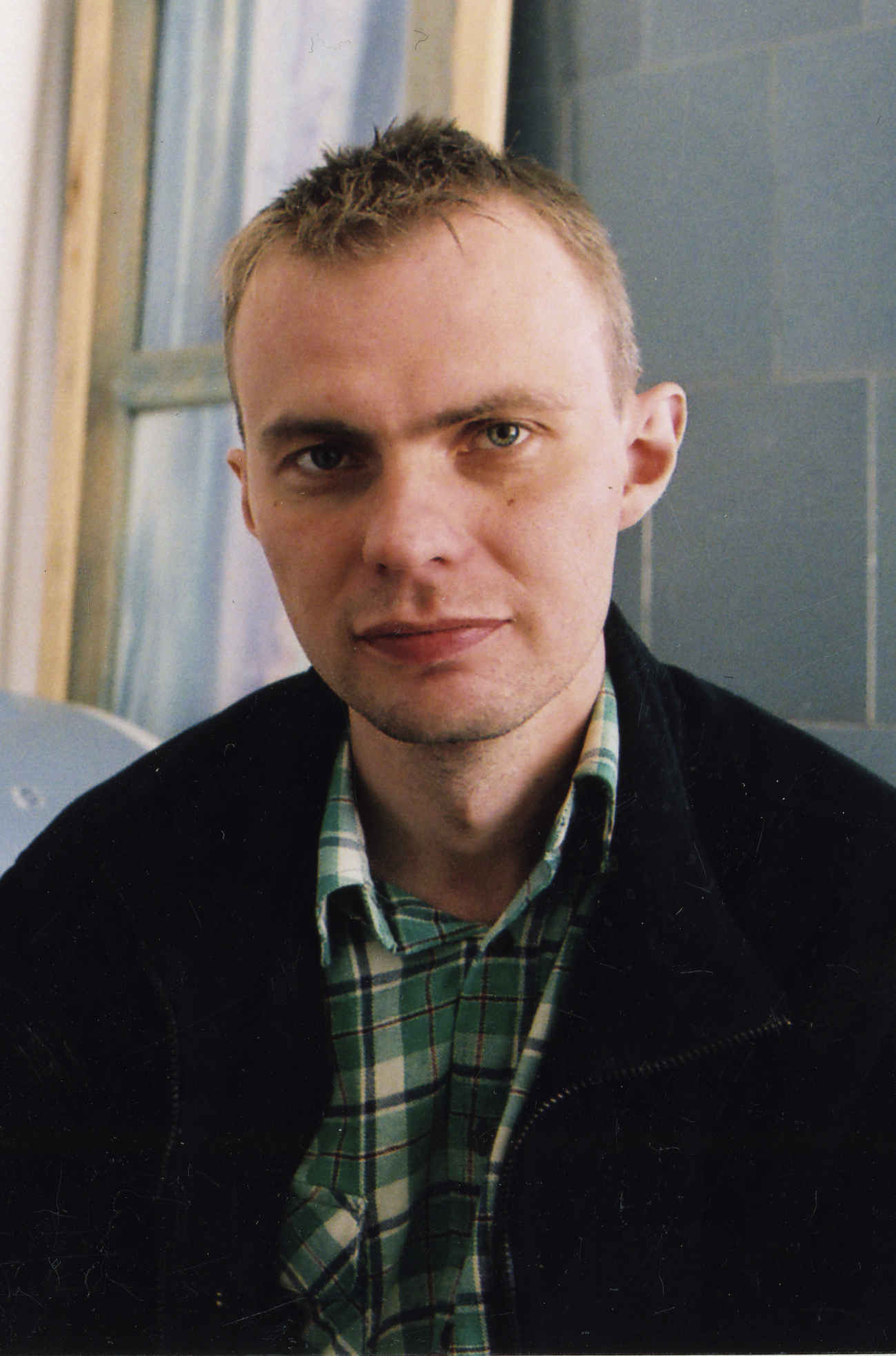
Aarne Ruben
Aarne Ruben (b. 17. VII 1971) is a prose writer and poet.
He was born in Tallinn, graduated from Rapla secondary school in 1990 and worked as a journalist after doing his military service. Aarne Ruben studied at the Estonian Institute of the Humanities and in 2008 completed his master’s degree in literary studies at the University of Tallinn; his master’s dissertation was entitled ‘Karl Ristikivi and the Middle Ages’. In 2013 he worked at the University of Tampere [Finland] as lecturer in Estonian literature. Since 2018 he has worked at the Tartu Raatuse School as a teacher of Estonian language and literature.
Ruben made his debut in 1993 as a poet with the collection Raevule (‘To Rage’), as one of the authors on a poetry cassette. In 1994 Ruben’s collection Ajakirjanik (‘The Journalist’) appeared. Aarne Ruben has written short stories and novels, several of which are based on Estonian 20th century history. His best-known work is the novel Volta annab kaeblikku vilet (‘Volta Gives a Plaintive Whistle’), which tells of the Russian revolution of 1905, Lenin and the Dada movement in Zurich. The book is full of intertextual references; the keynote of the work is parody, pastiche and anecdote. The novel is enjoyable for the intellectual reader, who knows the historical figures and the events of the book. The main protagonist is presented as a kind of national archetype: initially he is courageous but quite simple-minded, like a true mythical hero, who by the end becomes an experienced man. For this work Ruben won first prize in the Estonian novel competition in 2000. Since that year he has been a member of the Estonian Writers’ Union.
In nearly all his works Ruben merges historical subject matter with invention. In his subsequent works too, the action follows history. In the novel Elajas trepi eelastmel (‘The Beast at the Foot of the Stairs’, 2004), the action takes place in the 15th century. Since 1998 Ruben’s short stories have been published in the journal Looming. Some of Ruben’s texts have been classified as science fiction, such as the novel Talvehommiku harmas kindakirjad (‘Mitten-patterns in the Frost of a Winter Morning’, 2016).
Ruben has produced the historical monographs Nõiaprotsessid Eestis (‘The Witch Trials in Estonia’, 2016) and The Story of Lutheran Sects: In Christ We Speak (2020). He has also published research articles on the semiotics of historical materials in the journal Semiotica and elsewhere.
L. P. (Translated by C. M.)
Books in Estonia
Novels
Vares-Barbaruse valitsus: ajaloolis-publitsistlik draama. Tallinn: SE&JS, 2001. 246 lk.
Volta annab kaeblikku vilet. Tallinn: Tänapäev, 2001. 346 lk.
Elajas trepi eelastmel. Tallinn: Tuum, 2004. 237 lk.
Kröitsi sõjaaegne vaimulaps. Tallinn: Pegasus, 2008. 454 lk.
Ärid kuuliaukudega majades. Tallinn: Eesti Raamat, 2009. 235 lk.
Viimne kohtupäev. Tallinn: Eesti Raamat, 2010. 150 lk.
Ilusast naisest ei saa head muumiat: globaalne põnevusromaan. Muraste [Harjumaa]: Randvelt Kirjastus, 2011. 299 lk.
Püstol Waltheriga metsikutes laantes. Tallinn: Eesti Raamat, 2011. 207 lk.
Karl Kiilaspea pärijad: romaan sellest, kuis üks rüütel oma armsa ratsu tagasi saab. Tartu: Fantaasia, 2013. 200 lk.
Sinine soon kättemaksja peas. Tallinn: Eesti Raamat, 2014. 175 lk.
Talvehommiku harmas kindakirjad: mõistatuslik lugu Djatlovi kurust. Tartu: Fantaasia, 2016. 126 lk.
Short prose
Lugusid Anveltist ja Kingissepast. Tallinn: Eesti Keele Sihtasutus, 2007. 190 lk.
Öönaine valguses ja varjus: kaksteist moraalilugu ajaloost. Tallinn: Tänapäev, 2019. 239 lk.
Poems
Raevule. Tallinn: Eesti Raamat, 1993. 63 lk.
Ajakirjanik. Tallinn: A. Ruben, 1994. 39 lk.
Monographs
Raeapteegi lugu. Tallinn: Revali Raeapteegi Muuseumi Ühing, 2013. 166 lk.
Nõiaprotsessid Eestis. Tallinn: Varrak, 2016. 351 lk.
The Story of Lutheran Sects: In Christ We Speak. Newcastle upon Tyne: Cambridge Scholars Publishing, 2020. 110 lk.
Travel guides
Rooma reisijuht. Põhjalik teekond Rooma ajaloo ja kultuuri juurde. Tallinn: Go Group, 2012. 335 lk.



